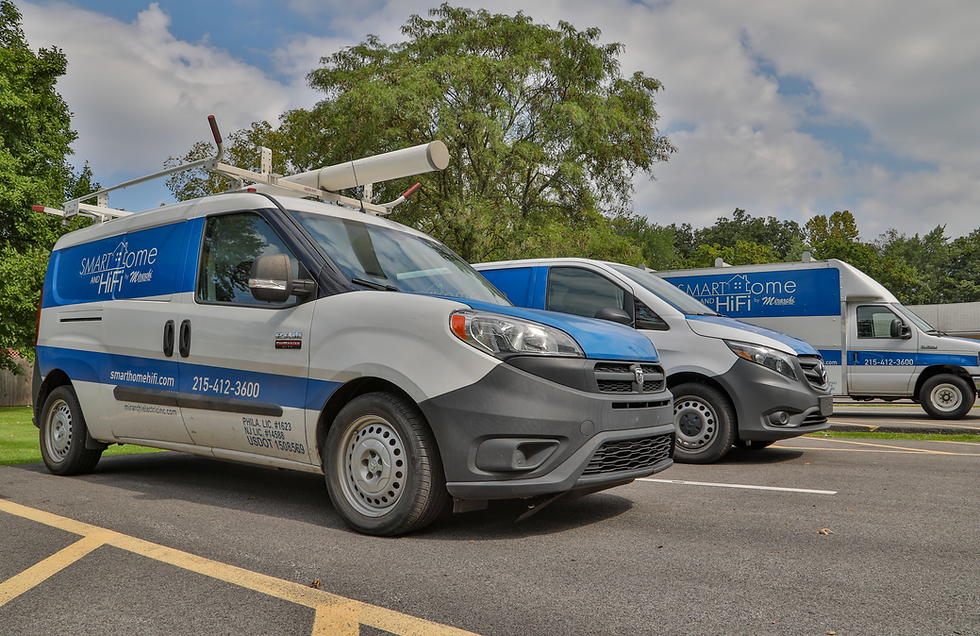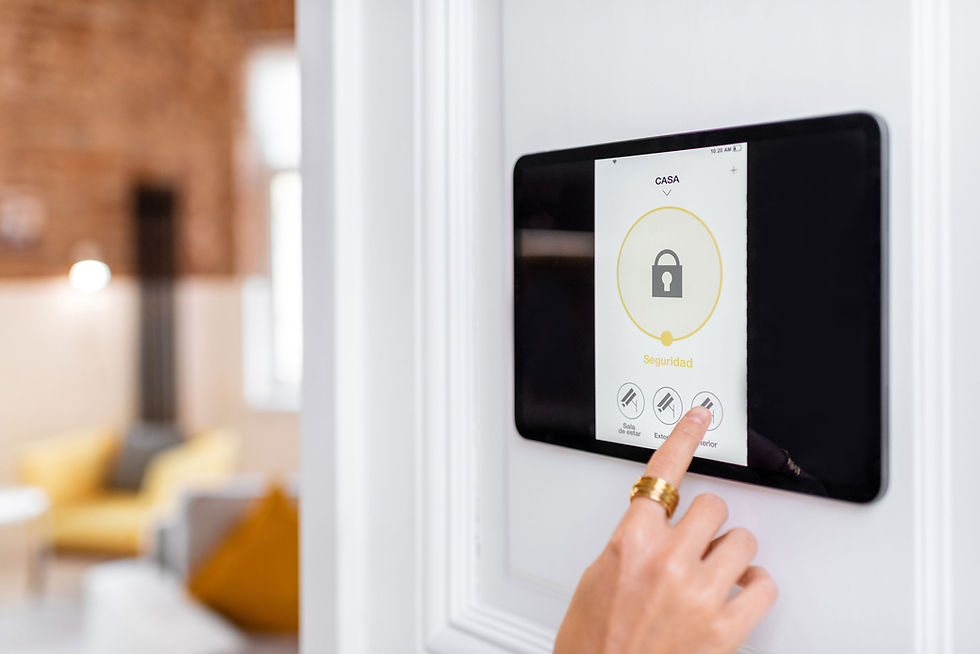How AI Might Change the Home Automation Industry
- Smart Home & HiFi
- Jul 9, 2024
- 3 min read
The home automation industry is on the cusp of a revolution, driven by advancements in artificial intelligence (AI). From smart thermostats that learn your preferences to security systems that recognize faces, AI is poised to transform how we interact with our homes. In this blog, we'll explore the potential impact of AI on the home automation industry and what it means for homeowners.

Personalized Living Experiences
AI has the potential to create highly personalized living experiences by learning and adapting to individual preferences. Smart home devices can use AI to analyze patterns in your behavior and adjust settings accordingly. For example, smart lighting systems can adjust brightness and color temperature based on the time of day and your activities, creating a more comfortable and efficient living environment.
Enhanced Security Systems
AI-powered security systems are becoming more sophisticated, offering advanced features such as facial recognition, anomaly detection, and predictive analytics. These systems can identify potential threats and alert homeowners in real-time, providing a higher level of security. Additionally, AI can integrate with other smart devices to create a comprehensive security network, ensuring that your home is always protected.
Energy Efficiency and Cost Savings
AI can optimize energy usage in your home, leading to significant cost savings and a reduced environmental footprint. Smart thermostats, for example, can learn your schedule and adjust heating and cooling settings to minimize energy consumption when you're not home. AI can also monitor energy usage patterns and provide recommendations for reducing waste, helping you save money on utility bills.
Voice and Gesture Control
Voice assistants like Amazon Alexa, Google Assistant, and Apple Siri are becoming central hubs for home automation. AI enables these assistants to understand and respond to natural language commands, making it easier for homeowners to control their smart devices. In the future, AI could also enable gesture-based controls, allowing you to manage your home automation system with simple hand movements.
Predictive Maintenance
AI can help identify potential issues with your home systems before they become major problems. By monitoring the performance of appliances and systems, AI can detect anomalies and predict when maintenance is needed. This proactive approach can prevent costly repairs and extend the lifespan of your home’s infrastructure.
Interoperability and Integration
One of the challenges of home automation is ensuring that different devices and systems work seamlessly together. AI can facilitate better interoperability by learning how various devices interact and optimizing their performance. This integration can create a more cohesive and efficient smart home ecosystem, where devices communicate and collaborate effectively.
Improved Health and Wellness
AI can contribute to a healthier living environment by monitoring indoor air quality, humidity levels, and other factors that affect well-being. Smart home systems can adjust ventilation, filtration, and temperature settings to create an optimal indoor climate. Additionally, AI can integrate with health devices like smart scales and fitness trackers to provide personalized health and wellness recommendations.
Smarter Entertainment Systems
AI can enhance your home entertainment experience by learning your preferences and making personalized recommendations for movies, music, and TV shows. Smart speakers and streaming devices can use AI to create custom playlists and suggest content based on your viewing and listening habits. This personalization can make your entertainment options more enjoyable and engaging.
Convenient and Intuitive Interfaces
AI can simplify the user experience by creating more intuitive and user-friendly interfaces. Machine learning algorithms can analyze how you interact with your smart home system and adapt the interface to suit your preferences. This can make it easier for homeowners of all ages and tech-savviness levels to take full advantage of home automation technology.
AI is set to revolutionize the home automation industry by offering personalized living experiences, enhancing security, improving energy efficiency, and providing intuitive control interfaces. As AI technology continues to advance, the potential for creating smarter, more efficient, and more convenient homes will only grow. Homeowners who embrace AI-powered automation will not only enjoy increased comfort and security but also benefit from cost savings and a more sustainable lifestyle. The future of home automation is bright, and AI is leading the way.






